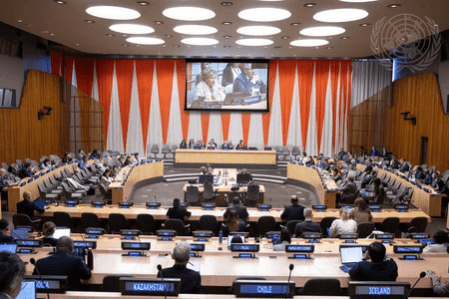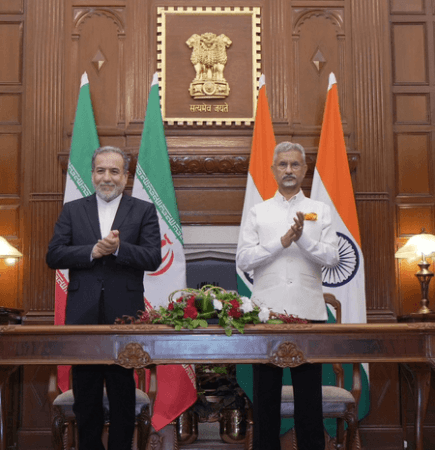
India has been elected to the United Nations Economic and Social Council (ECOSOC) for a three-year term starting next year, securing 181 out of 187 valid votes. This election underscores India's commitment to addressing global development challenges and strengthening ECOSOC's role in sustainable development.
External Affairs Minister S. Jaishankar expressed gratitude to the countries that supported India's candidacy, stating, "India remains committed to championing development issues and keep working to strengthen the ECOSOC."
This election marks at least the 18th term for India on ECOSOC, highlighting its longstanding involvement in the council. India's previous four-term run from 2008 to 2020 demonstrated its active participation in shaping global policies.
ECOSOC, as the main UN body dealing with sustainable development and economic matters, plays a crucial role in addressing global challenges. With representation from all 193 UN member states, ECOSOC's 54 members are elected for three-year terms, with a third of the seats up for election every three years.

The election process for ECOSOC is structured by regional representation, with seats distributed among different regions. This year, four seats for the Asia Pacific region were up for election. India, along with China, Lebanon, and Turkmenistan, was elected to these seats. China, whose term was ending this year, successfully ran for re-election, securing 180 votes. Lebanon and Turkmenistan each received 183 votes, and all candidates were endorsed by their respective regional groups.
Regional Dynamics and Election Process
The East Europe group witnessed a competitive election, with Ukraine surpassing Russia, which was forced into a runoff after failing to secure enough votes in the first ballot. The region did not present a slate for the three seats, resulting in five contestants vying for the positions. Ukraine, with 130 votes, and Croatia, with 140, were elected in the first round, having secured two-thirds of the votes. Russia, with 108 votes, faced a runoff against its ally Belarus, which received 96 votes. North Macedonia, the lowest vote-getter, was eliminated with 59 votes. In the runoff, 23 countries abstained, lowering the two-thirds threshold, and Russia won with 115 votes to Belarus's 46.
In addition to the regular elections, the United States and Germany won by-elections to ECOSOC due to the resignation of Italy and Liechtenstein from their seats. This reshuffling highlights the dynamic nature of ECOSOC's membership and the strategic importance countries place on securing a seat on the council.
India's election to ECOSOC places it alongside its neighbors Pakistan, Nepal, Bangladesh, and Sri Lanka, all of whom are current members of the council. This regional presence underscores the importance of collaboration and dialogue among South Asian nations in addressing shared development challenges and opportunities.









